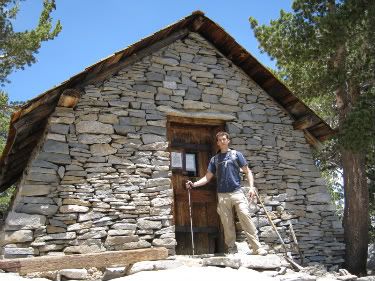











But if you ask, where the faith and the confidence can be found and whence they come, this it is certainly most necessary to know. First: Without doubt faith does not come from your works or merit, but alone from Jesus Christ, and is freely promised and given; as St. Paul writes, Romans v: "God commendeth His love to us as exceeding sweet and kindly, in that, while we were yet sinners, Christ died for us"; as if he said: "Ought not this give us a strong unconquerable confidence, that before we prayed or cared for it, yes, while we still continually walked in sins, Christ dies for our sin?" St. Paul concludes: "If while we were yet sinners Christ died for us, how much more then, being justified by His blood, shall we be saved from wrath through Him; and if, when we were enemies, we were reconciled to God by the death of His Son, much more, being reconciled, shall we be saved by His life."
Lo! thus must thou form Christ within thyself and see how in Him God holds before thee and offers thee His mercy without any previous merits of thine own, and from such a view of His grace must thou draw faith and confidence of the forgiveness of all thy sins. Faith, therefore, does not begin with works, neither do they create it, but it must spring up and flow from the blood, wounds and death of Christ. If thou see in these that God is so kindly affectioned toward thee that He gives even His Son for thee, then thy heart also must in its turn grow sweet and kindly affectioned toward God, and so thy confidence must grow out of pure good-will and love -- God's love toward thee and thine toward God. We never read that the Holy Spirit was given to any one when he did works, but always when men have heard the Gospel of Christ and the mercy of God. From this same Word and from no other source must faith still come, even in our day and always. For Christ is the rock out of which men suck oil and honey, as Moses says, Deuteronomy xxxii.
- Martin Luther, from A Treatise on Good Works, 1520




This food we call the Eucharist, of which no one is allowed to partake except one who believes that the things we teach are true, and has received the washing for forgiveness of sins and for rebirth, and who lives as Christ handed down to us. For we do not receive these things as common bread or common drink; but as Jesus Christ our Savior being incarnate by God's Word took flesh and blood for our salvation, so also we have been taught that the food consecrated by the Word of prayer which comes from him, from which our flesh and blood are nourished by transformation, is the flesh and blood of that incarnate Jesus.
- Justin Martyr (A.D. 103-165)

